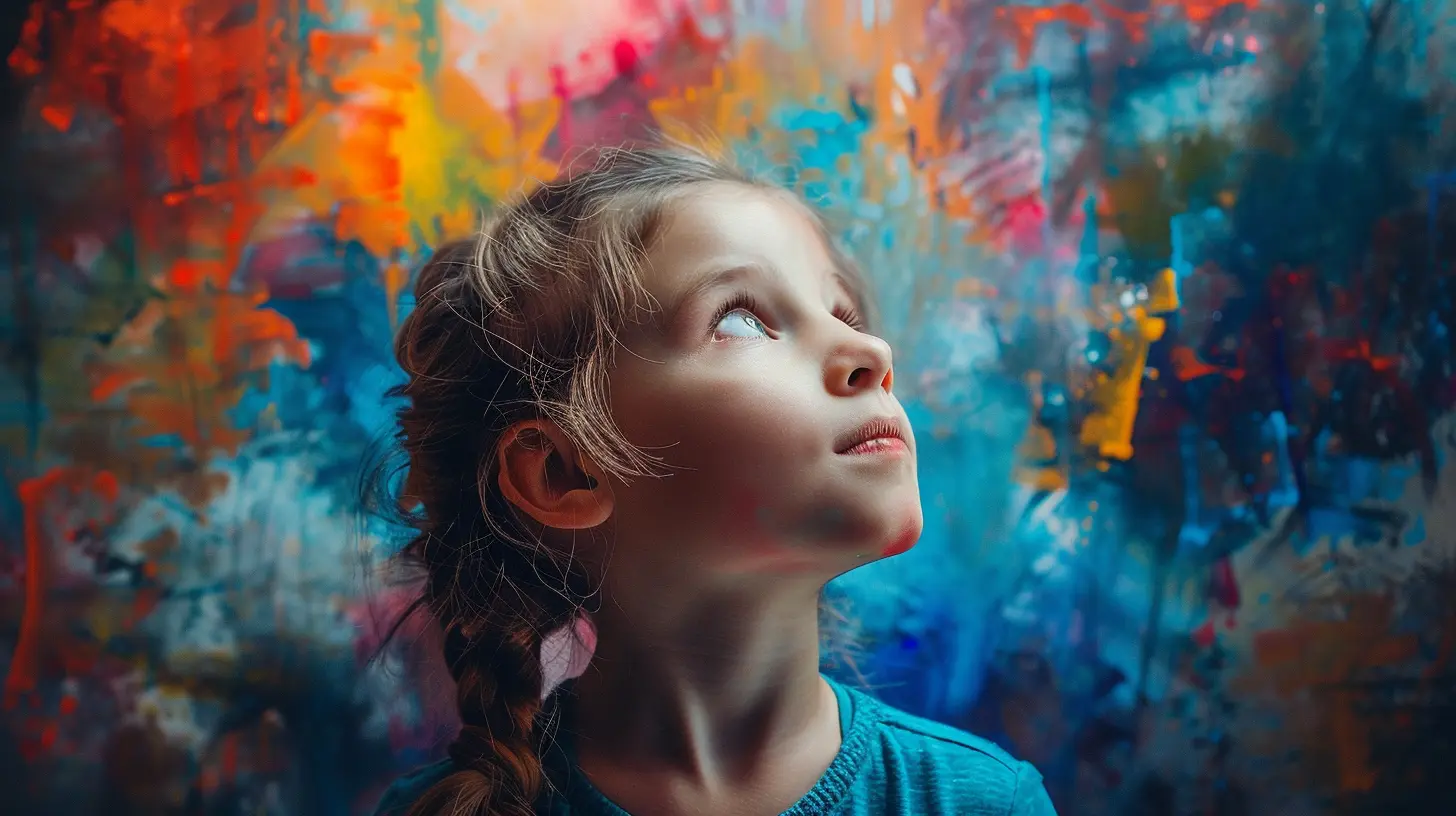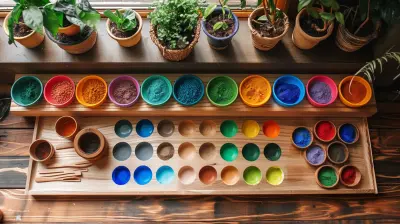Fostering a Growth Mindset in Young Children
16 July 2025
Raising confident, resilient, and adaptable children? That’s pretty much every parent’s dream, right? If you've ever watched your child melt into a puddle of frustration over a tricky puzzle or math problem, then you know how real the struggle can be. But here’s the secret sauce: fostering a growth mindset in young children.
Now, before you imagine something out of a psychology textbook, let’s break things down in a way that makes total sense. A growth mindset is basically the belief that abilities and intelligence can be developed with effort, learning, and patience. Sounds pretty good, doesn’t it? So, how do we coach little minds to think like this—especially in a world where instant gratification is everywhere?
Let’s dive right in.
What Is a Growth Mindset Anyway?
Okay, let’s get this straight from the start—this term isn’t some trendy parenting buzzword. It’s rooted in research, mainly from psychologist Carol Dweck. She’s the one who coined the idea of growth vs. fixed mindset.In kid-speak? A fixed mindset says, “I’m just not good at this,” whereas a growth mindset says, “I’m not good at this YET.”
That one little word—"yet"—can be a total game-changer.
Children with a growth mindset are more likely to embrace challenges, bounce back from failures, and keep trying even when stuff gets hard. Isn’t that exactly what we want for our kids in school, sports, and life?
Why Mindset Matters So Much in Early Childhood
The early years set the stage for everything. Young brains are like sponges—soaking up way more than we realize. If we help kids develop a healthy, growth-oriented perspective early on, they’re more likely to carry those beliefs (and behaviors) well into adulthood.Think of it like planting a seed. The mindset we help nurture today? It’s tomorrow’s confidence, resilience, and potential.
Signs Your Child Might Be Stuck in a Fixed Mindset
Before we move on to the how-tos, let’s hit pause and look at some red flags that might hint your child’s thinking is stuck:- They give up easily when faced with something new or tough.
- They avoid challenges—they’d rather play it safe.
- They often say things like, “I’m just not smart,” or “I can’t do it.”
- They see failure as something to fear or feel ashamed of.
Sound familiar? Don’t panic—this is more common than we think. The good news? Mindsets aren’t set in stone. They can absolutely be reshaped.
Everyday Ways to Encourage a Growth Mindset
The big question: how do we actually foster a growth mindset in young kids?Spoiler: It’s all about the little things we do (and say) every single day.
1. Praise the Process, Not the Person
Instead of, “You’re so smart,” try something like:> “Wow, I can see you worked really hard on that!”
Why? Because praising effort, strategies, and perseverance reinforces the belief that success comes from doing—not from being naturally gifted.
It’s like cheering on the mountain climber for every step they take, not just when they reach the top.
2. Embrace Mistakes as Learning Opportunities
How we react to mistakes teaches our kids how to view them too. When your child messes up, resist the urge to swoop in or correct them too quickly.Instead, ask questions like:
- “What do you think didn’t go the way you expected?”
- “What could we try differently next time?”
This tells them mistakes aren’t the end—they’re just part of the learning dance.
3. Model a Growth Mindset Yourself
Kids are mini detectives. They’re constantly watching and absorbing what we do. So if you beat yourself up over burning dinner or avoid trying something hard, guess what? They notice.Try this instead:
> “Oops—I messed that up. But that’s okay! I learned something new.”
Being real with our own struggles (and growth) gives them permission to do the same.
4. Use the Power of “Yet”
This tiny word carries BIG weight. Encourage your child to tack on “yet” whenever they feel stuck.“I can’t tie my shoes… yet!”
It sends a subtle but powerful message: ability is a journey, and they’re on their way.
5. Read Growth Mindset Books Together
Children’s books are a magical way to introduce these ideas in a relatable and inviting way.Some favorites:
- “The Most Magnificent Thing” by Ashley Spires
- “Beautiful Oops!” by Barney Saltzberg
- “The Girl Who Never Made Mistakes” by Mark Pett & Gary Rubinstein
Sharing these stories helps children see growth mindset in action.
6. Celebrate Effort Over Outcome
Next time your child brings home a drawing or a test, take a deep breath and focus on how they got there.“Wow, I love how much time you spent on this!” works wonders compared to “You got an A—awesome!”
Praise the journey, not just the destination.
Helping Your Child Reframe Negative Self-Talk
Let’s be real—kids can be their own worst critics. Just like us.So when you hear phrases like:
- “I can't do this.”
- “I'm not smart.”
- “I always mess things up.”
It’s your cue to step in gently and help reframe.
Say something like:
> “It’s okay to feel frustrated. But remember, you’re learning. Every time you practice, your brain gets stronger!”
It’s like helping them change the inner voice from a mean little gremlin into a kind, supportive coach.
When Things Don’t Click Right Away
Now, don’t expect overnight miracles. Teaching kids to embrace challenges is a long game.They’ll push back. They’ll whine. They might even scream “I hate math!” with the kind of drama only kids can pull off.
That’s okay.
Just keep showing up. Keep using growth mindset language. Keep believing in their ability to grow—even when they don’t believe it yet.
Parenting is a lot like being a gardener. You plant seeds, water them, and protect them. But the growing? That takes time.
Working Together as a Team
Looking to make growth mindset a “whole family vibe”? Amazing! Here are some extra ideas:- Start a dinner conversation: “What mistake did you make today that helped you learn something?”
- Set family goals and talk about progress, not perfection.
- Post encouraging mantras around the house—sticky notes for the win!
- Celebrate trying new things, not just getting things right.
The more it becomes part of everyday life, the more natural it feels.
What School Has to Do With It
Partnering with your child’s school can also help reinforce growth mindset values. Many classrooms now focus on celebrating effort and growth, not just grades.Check in with your child’s teacher:
- Are they using growth mindset language in the classroom?
- Can you support any classroom goals at home?
Creating consistency between home and school makes a big difference.
The Long-Term Payoff: Why It Truly Matters
Let’s zoom out for a second.When kids learn that their abilities aren’t fixed—that their brains are like muscles, growing stronger with effort—they carry that belief into every area of life.
They’ll handle setbacks in relationships better.
They’ll face new tasks at work without panicking.
They’ll dream big, take risks, and know that failure isn’t final.
And isn’t that what we all want for our children?
Final Thoughts: Raising Mighty Little Learners
Fostering a growth mindset in young children isn’t about perfection. It's about planting the idea that trying matters. That messing up is okay. That giving up shouldn’t be the first option.As a parent, you have a front-row seat to your child’s learning journey. You also play the starring role.
So keep cheering them on. Keep modeling effort and resilience. Keep sprinkling “yet” into your conversations like glitter.
Because with enough encouragement, patience, and love, your child truly can grow into someone who believes: “I can do hard things.”
And that belief? It’s priceless.
all images in this post were generated using AI tools
Category:
Child DevelopmentAuthor:

Austin Wilcox
Discussion
rate this article
1 comments
Makayla Conrad
Fostering a growth mindset in young children is essential for their development. Encourage them to embrace challenges, learn from mistakes, and celebrate effort over outcome. Use specific praise that highlights persistence and resilience. Engaging in open discussions about learning experiences can further reinforce these values, promoting lifelong learning and confidence.
August 6, 2025 at 4:51 PM

Austin Wilcox
Thank you for highlighting the importance of fostering a growth mindset! Emphasizing challenges and learning from mistakes truly lays a foundation for lifelong confidence and resilience in children.


